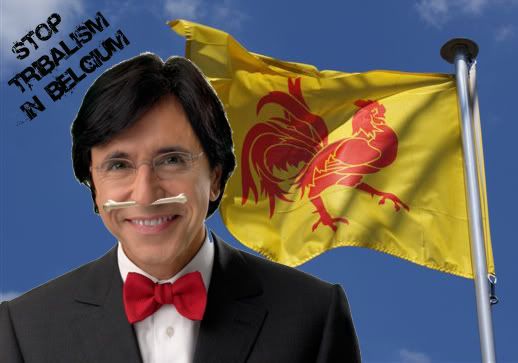Archive for the ‘europe’ Category
Hello Europe
Posted: April 15, 2013 in Belgium, europe, SOLUTION, time for dialogueTags: identety, Media, Understanding other people’s culture and tribes
Colonial interference and Europe’s failure to absorb minorities has led to a global decay of the state
Modern governments, when they try to justify their existence in historical terms, are apt to propose a rough-and-ready anthropology for human development. First came the tribe – savage in instinct, ritualistic in religion and run on the basis of a grunting solidarity; humanity’s first exercise in collectivism. The nation, which takes its place, is for more refined, literate peoples and can call upon scholars and scribes, chroniclers and preachers, who propose common goals for the nation.
Organised states, with their bureaucracies, sanitation services and taxation policies, like to think that they exist on a higher plane than either the tribe or the nation. Ethics loom large and morality’s plans acquire a finer focus. Modern governments are meant to promote the fulfilment of individuals, their happiness and ease of life. Savages have become citizens and can look beyond the narrow ambitions of the tribe.
Nations continue to exist within the modern democratic state. But elections in such societies are won on the basis of economic plans which persuade individuals that their futures will be healthier and more interesting under one dispensation than another. In that calculus, being a better patriot hardly makes an appearance and the politician draped in the flag is an object of suspicion.
A summer of Middle Eastern battles is a reminder of how precarious this genealogy is and how the ancient loyalties still subsist. Hizbullah and Hamas are tribes which have flourished because of the breakdown of state authority in Lebanon and the failure of the Palestinian Authority to exercise any kind of state order. Hands outstretched in collective salute, the members of these tribes are reminiscent of western Europe’s last tribal moment, the fascism of the 1930s. In both cases there is the use of religion to promote a tribal solidarity.
Israel itself is no less tribal an affair than its opponents. The secular state and socialist values have long since disappeared from its history. It was always a quixotic idea that the nationalist theory of Zionism could be successfully transplanted from the European political tradition of the 19th century to the Middle East of the 20th century. Israel has simply degenerated into its context.
Within Europe the tribe has become one of the key features of the 21st century. The continent’s last great east-to-west movement of the displaced was in the wreckage of the post-1945 world. That Völkerwanderung has returned in the wreckage of the Warsaw Pact. Russia’s revival as a great power has been a renaissance, first, in Slavic consciousness. The Russia built by Peter the Great looked to the western tradition of state-building, but the country now run by Vladimir Putin looks both to its Slavic roots and to its own embodiment as the home of the tribe and people of Rus.
Even the world’s last superstate shows features of tribal activity at work in the age of Bush. America’s politicised form of evangelicalism is uninterested in the ideals of common democratic purpose. Its religion is that of the tribe at work and at worship – promoting its own solidarity. Having retreated within its own cultic view of the world, it then imposes its views on others – as in the case of the presidential ban on stem-cell research.
Middle Eastern tribalism, just like the African variety, is the direct result of colonial interference which frustrated the indigenous development of state-building. Ruled from above – often through regimes lacking popular legitimacy – peoples retreat naturally to the tribe, which offers solidarity and hope.
Tribalism in Europe has more to do with the failure of the governmental project in the late 20th century. France has failed to absorb its Muslim minority, who are drawn to ever more tribal loyalties. British tribalism has taken its cue from the degeneration of welfarist aspiration into a bureaucratic exercise. Here the moral case for taxation in terms of human progress seems so implausible that it is rarely presented, and “wars on waste” come and go, achieving little.
Flirtation with English tribalism represents an attempt at breathing new life into ancient conflicts in a world of devolved government – as with the Tory proposal to ban Welsh and Scottish MPs from voting on legislation with an exclusively English application. This is an old game of division and separation. Genetic research has shown how, within 15 generations of their fifth- to seventh-century arrival, the genes of the Anglo-Saxons had multiplied so successfully that they accounted for more than half the male DNA in the population of England. Most probably through enforced segregation and a ban on intermarriage, the invading tribes had isolated the native British tribes in order to create a new, Germanicised country. Early medieval history has become the best guide to our age of the decay of states and the degeneration of nations into tribal attitudinising.
Hywel Williams, The Guardian, Wednesday 23 August 2006




